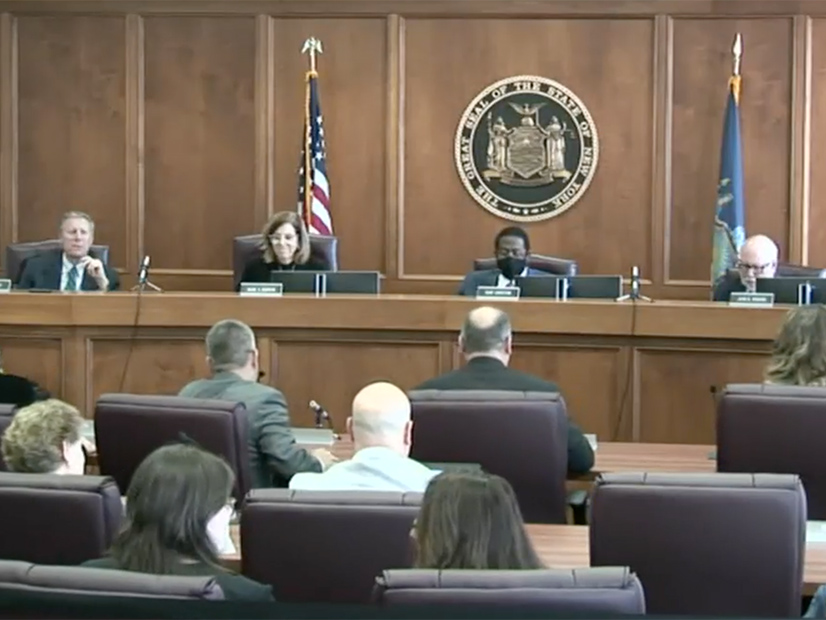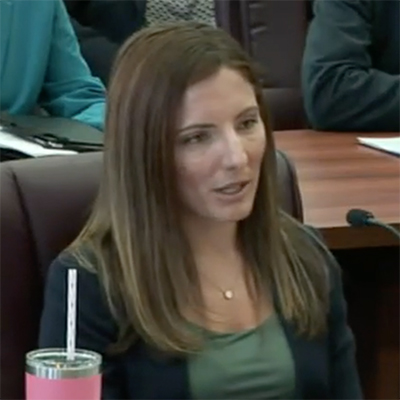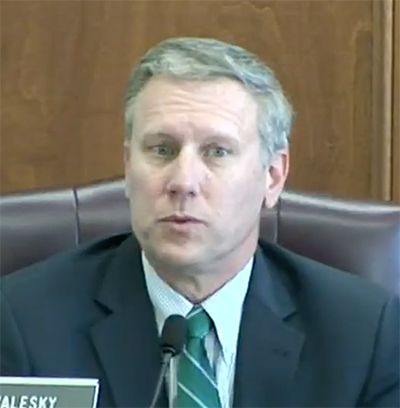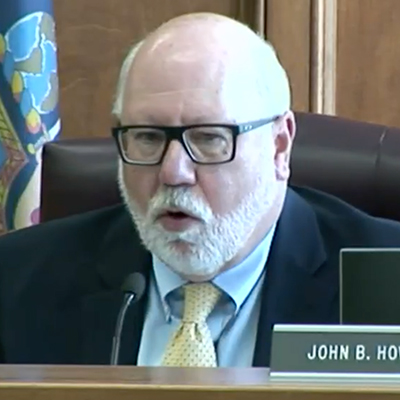
The New York Public Service Commission on Thursday established a new proceeding to track state efforts to meet the environmental goals of the Climate Leadership and Community Protection Act (CLCPA), but some commissioners pressed for a more thorough cost/benefit analysis and better defined cost allocation (22-M-0149).
 Jessica F. Waldorf, NYDPS | NYDPS
Jessica F. Waldorf, NYDPS | NYDPS“When taking our existing renewable energy generation and combining it with the projects that are awarded, existing and contracted, 63% of the state’s generation will come from renewable sources, well on the way to achieving 70% renewable energy by 2030,” said Department of Public Service Chief of Staff Jessica F. Waldorf.
With the requirements of implementing the CLCPA falling to the PSC and the DPS, the May 12 order does not conflict with the work of the Climate Action Council (CAC) or with the work taking place in the natural gas planning proceeding or any other related proceeding. It does not include any new funding decisions, nor does it ask the commission to make any new decisions on policy issues, Waldorf said.
The PSC on Thursday also announced new planning procedures for natural gas utilities to comply with the state’s greenhouse gas emission reduction goals, as well as new rules that set forth the process for initiating, operating and lifting a natural gas moratorium (20-G-0131).
The CAC is holding public hearings on its draft scoping plan through June 10, including emissions scenarios for natural gas, and will finalize the plan by year-end for submission to the state’s elected officials. (See NY Climate Council Ramps Up Natural Gas, Alt Fuels Planning.)
Flexible Policy
“I am concerned that in some ways the draft scoping plan does seem to try to narrow some of [the issues] in a way that may not leave enough flexibility for what is under our jurisdiction, or tries too much to direct things that may more appropriately need to be carefully analyzed under our jurisdiction by the technical experts over at DPS,” said Commissioner Diane X. Burman, who abstained on the vote.
 NYPSC Commissioner Diane X. Burman | NYDPS
NYPSC Commissioner Diane X. Burman | NYDPSCommissioner David Valesky seconded Burman, saying the order “should be flexible enough to both react to whatever that final Climate Action Council scoping plan will be later this year, but also firm enough so that it continues to maintain the priorities of this commission, which as we all know has nothing to do with the Climate Action Council, with the exception of the chair holding dual role roles both here and on the council, so I think that that could be a delicate balance.”
The DPS is starting a process now with the utilities on decarbonizing the natural gas system and evaluating “what that means on a practical basis and also what the cost impacts and technical feasibility of actually achieving that look like,” Waldorf said. “So there is a reference to the draft scoping plan in the gas section of the draft order, but it was intentionally put in there to call attention to the fact that we’re not looking to conflict with any actions at the state level. We recognize them and to the extent that firm recommendations come out of that process, can get incorporated into future plans and we’ll incorporate that into ours as well.”
Commissioner Tracey A. Edwards said that while the CAC’s Climate Justice Working Group has three members from New York City, three from the rural communities, and three from urban communities in upstate New York, it does not include suburban communities and does not include anyone from Long Island.
“I’m particularly interested in what their responsibilities are and then taking a look at all of the different working groups, as the other one that piqued my interest was the Just Transition Working Group,” Edwards said.
Upstate Concerns
The CLCPA-tracking order locks in the volumetric load-share ratio for paying for renewables and associated transmission projects, which is neither fair nor adequate as policy, said Commissioner John B. Howard.
 NYPSC Commissioner David Valesky | NYDPS
NYPSC Commissioner David Valesky | NYDPS“I understand it’s an easy accounting mechanism, but I don’t think it really gets to the point,” Howard said, proposing instead that DPS staff do “an actual accounting of what things cost people” and what these new costs will mean to the broader economic competitiveness in each region of the diverse state.
Howard reiterated his oft-expressed concern that residents upstate, where more than 90% of the grid is zero-emissions, are being asked to pay a disproportionate share of the cost of greening the fossil fuel-fired generation fleet downstate. (See Stakeholders Question CLCPA Pace and Costs for New York.)
“Our entire state’s economy is shaky in its foundations, but I believe the upstate economy is shakier,” Howard said. “The legislature, either through its silence or total lack of action, has given this commission nearly the exclusive responsibility to reach into New Yorkers’ pockets to pay for the CLCPA mandates.”
 NYPSC Commissioner John B. Howard | NYDPS
NYPSC Commissioner John B. Howard | NYDPSThe PSC needs clarity “to cut through this fog … created by a totally unworkable program from the 22-member Climate Action Council and the subsequent subcommittees. It is almost a Rube Goldberg way to make public policy,” Howard said.
Howard supported the tracking order but joined Burman in voting “no” on a consent agenda item to implement transmission planning pursuant to the Accelerated Renewable Energy Growth and Community Benefit Act (20-E-0197); and in voting against a pair of consent agenda items related to the public policy transmission planning needs of NYISO for 2018 and 2020 (18-E-0623; 20-E-0497).
“If the legislature does not want to pay for [CLCPA], I hope my colleagues on this commission understand that responsibility falls to us exclusively to the tune of hundreds of billions of dollars and it is an awesome responsibility that we got through statute and by default,” Howard said.


